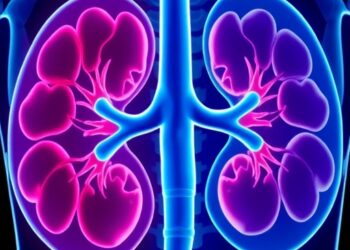Leuven/Amsterdam/Cambridge, 5 September– A team of researchers at the VIB-KU Leuven Center for Cancer Biology, the Netherlands Cancer Institute and Oncode Institute and the University of Cambridge have discovered that a defensive mechanism connected to the menstrual cycle plays a role in spreading mutant cells within mammary tissue. A new study published in Nature describes how the growth and subsequent removal of extra milk ducts in breast tissue during the menstrual cycle can contribute to the spread of mutant cells leading to large mutant fields prone to develop tumors.
Leuven/Amsterdam/Cambridge, 5 September– A team of researchers at the VIB-KU Leuven Center for Cancer Biology, the Netherlands Cancer Institute and Oncode Institute and the University of Cambridge have discovered that a defensive mechanism connected to the menstrual cycle plays a role in spreading mutant cells within mammary tissue. A new study published in Nature describes how the growth and subsequent removal of extra milk ducts in breast tissue during the menstrual cycle can contribute to the spread of mutant cells leading to large mutant fields prone to develop tumors.
Although tissue in healthy individuals may look completely normal, it can contain large fields of mutant cells that are capable of growing into a tumor. The more cells within a normal looking, but mutant field, the higher the chance that one of these cells will behave abnormally and develop into cancer. To date, researchers are unsure of how these large fields of mutant cells develop in normal tissue.
Some theories propose that mutant cells spreading over large fields of tissue may play a crucial role in the initiation and recurrence of human breast cancer. An international team of researchers led by Professors Colinda Scheele at the VIB-KU Leuven Center for Cancer Biology, Jacco van Rheenen at the Netherlands Cancer Institute and Oncode Institute, from Cancer Grand Challenges team PRECISION, funded by Cancer Research UK and KWF Dutch Cancer Society, and Benjamin Simons at the University of Cambridge has now published new findings suggesting that a mechanism responsible for normal remodeling of breast tissue during the menstrual cycle is a potential driver of breast cancer development.
When remodeling does not go to plan
During the equivalent of the menstrual cycle in mice, the mammary glands go on a remodeling spree. Heightened estrogen levels ensure the creation of small alveoli that grow into milk-producing units upon pregnancy. However, when there is no pregnancy, the body recognizes that these alveoli serve no purpose. At the end of the cycle, the body therefore breaks down these milk ducts removing most of the expanded cells.
Even though this mechanism seems to be very effective at cleaning out excess cells, including mutant cells, it appears it is not infallible. The body cleans up most of these cells at the end of the cycle but some mutant cells, by chance, may survive this process. Instead, the tissue remodeling now allows these cells to proliferate and spread within the normal tissue. Thus, the natural tissue remodeling in the breast appears to be a double-edged sword: on the one hand it leads to the natural removal of excess (both normal and mutant) cells, on the other hand it facilitates the expansion of a few mutant cells within the healthy tissue.
Colinda Scheele: “In our study, we observed the evolution of mutant cells before they developed into cancer. More specifically, we labelled both healthy and mutated stem cells in the mammary tissue of mice and tracked their behavior over several months. Our findings showed that the menstrual cycle influenced the behavior of the labelled cells and allowed some of them to spread over large distances. ”
Jacco Van Rheenen: “Our findings demonstrate that with each menstrual cycle, there is a slight chance that mutated clones can become larger and spread over large areas within the breast tissue. This also means that a higher number of cycles increases the chances of this happening and therefore the chances of developing cancer in time. It also potentially explains why pregnancies and breast feeding decreases breast cancer chance.”
While this study provides a better understanding of the earlier stages of tumor formation, more research is needed to determine how and where healthcare practitioners can intervene to ensure cells carrying mutations do not develop into cancer. As a next step, the team hopes to examine human tissue from donors to verify if the same mechanisms are at work in the human body.
The research described in this scientific paper was made possible thanks to the Cancer Grand Challenges PRECISION team and through the financial support of the Boehringer Ingelheim Foundation, the FEBS excellence award, the Fonds Wetenschappelijk Onderzoek, EMBO, and the European Research Council.
Journal
Nature
Method of Research
Observational study
Subject of Research
Animals
Article Title
Mechanisms That Clear Mutations Drive Field Cancerization in Mammary Tissue
Article Publication Date
4-Sep-2024
COI Statement
The authors declare no competing interests.




